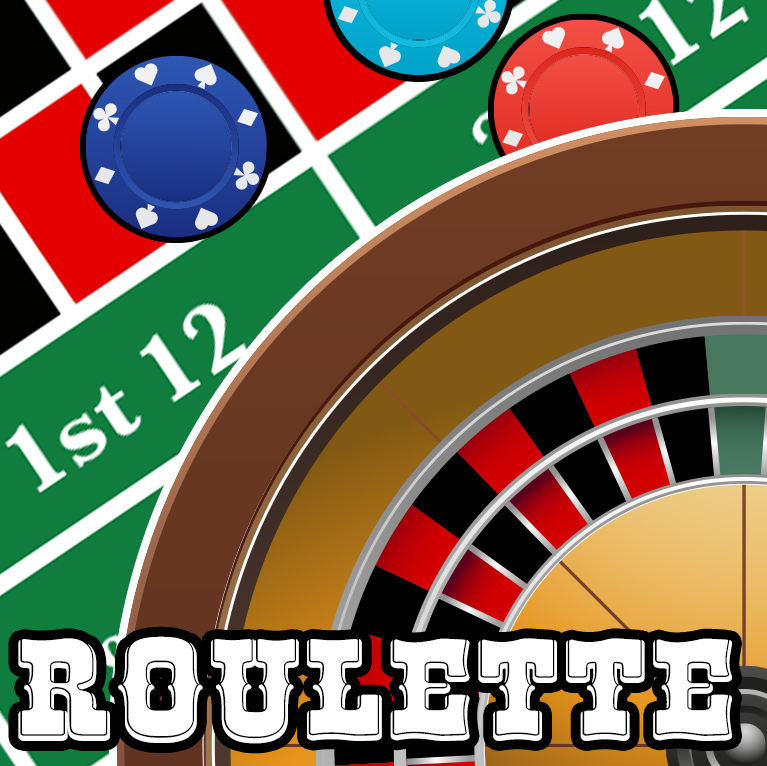4 is well known to be an unlucky number because 四 sounds similar to 死 (sǐ), which means "death" in Chinese. People will go to extremes based on superstitions of the number 4. Houses and apartments that have 4 in the address number will sell for much less than ones without. Mentioning the number four to an ill family member is considered to be highly offensive, and giving anything with 4 on it to someone can be seen as a death threat. Like 5, 7 has both positive and negative connotations in Chinese culture. For the positive side, 七 sounds like both 起 (qǐ), which means "start" or "rise", and also 气 (qì), which means "vital energy".
Seven is also seen as a lucky number for relationships. The Qixi Festival (七夕節), also known as the Chinese Valentine's Day, falls on the 7th day of the 7th month in the lunar calendar. The 7th month is also known as the "ghost month" in China, where ghosts and spirits are believed to rise from hell to visit earth.
While ghosts may be seen as omens, the ghost festival in the 7th month is widely celebrated. 7 may also be considered unlucky because 七 sounds like 欺 , meaning "cheat". 13 is one of the most controversial numbers and often divides the opinion of the numerologists. Some experts believe that house number 13 in Indian numerology will bring bad luck to the house owner and thus should be avoided altogether. On the other hand, house number 13 Feng Shui is not considered unlucky and neutral. Which reasoning is valid and should be followed depends on the individual Indeed, people who believe in house number numerology always have a strong opinion about the number 13.
Whether inspired by biblical stories or the legends of ancient people, these so-called lucky or unlucky properties assigned to numbers have real meaning to many people. Based on little more than a story, where the origin is often unknown, people will alter travel plans, delay purchases or spend their life savings on lottery tickets. Wonder where these numbers earned their reputations? Read on to learn about some of the most popular superstitions in the world of numbers. It's the stuff of legends for gamblers and lottery fans — and the universal symbol for slot machines and big Vegas jackpots.
Is 7 A Lucky Or Unlucky Number Wondering where the number gained its lucky reputation? It could be simply due to the fact that seven stands alone out of all the single-digit numbers; it's not divisible by anything, including five, making it powerful. It could also be attributed to the role that the number seven has played in history, culture and legend. God took seven days to create the world, the ancient world had seven planets and there are seven seas, seven wonders of the world and seven days of the week. Seek out the seventh son of a seventh son; he is supposed to have magical abilities, including healing powers and an unending pool of luck. In Italy, the number 17 is as unlucky as 13 is to Americans — for very good reason.
The Italians write 17 as XVII, which can be rearranged to form VIXI, which roughly translates to "I'm now dead" or "my life is over." Not a pleasant thought. Carmakers and other manufacturers avoid using the number when naming products or assigning model numbers, just in case. Ironically, the dreaded 13 is actually considered lucky in Italy, despite its reputation in many other parts of the world. The seven Classical planets resulted in seven being the number of days in a week. It is often considered lucky in Western culture and is often seen as highly symbolic. Unlike Western culture, in Vietnamese culture, the number seven is sometimes considered unlucky.
Because of its negative association with death, most people consider this number to be so unlucky that many buildings in China do not even have a "fourth" floor. The number 4 is also unlikely to appear on house/door numbers and car license plates. Whenever, possible, many people will also try hard to avoid choosing telephone numbers that contain the number 4. Chinese numerology might seem like an obscure field, but this unique set of beliefs plays a big role in modern Chinese culture. Read this article to gain insight into this quirky aspect of modern Chinese life. Is well known to be an unlucky number because 四 sounds similar to 死 (sǐ), which means "death" in Chinese.
Did you know that if you press a Chinese elevator button to go to the 50th floor of a building, you may actually only be going to the 35th floor? This is because many buildings in China not only omit the 13th floor, but are also missing any floor containing the number 4, which is considered to be the unluckiest number in Chinese culture. The Chinese have many superstitions about numbers, often related to similar-sounding words in the Chinese language, which are called homophones. 6 is pronounced "liu" in Mandarin Chinese, and this sounds like the Mandarin Chinese word meaning "flowing, smooth, or frictionless".
Therefore, the number 6 has the meaning of "everything will go smoothly" and is considered lucky especially where it occurs in multiples. In feng shui, the number 6 represents authority and power. In a world where the majority of people don't identify themselves as particularly superstitious, it's astounding just how much impact superstitions about numbers can have on the economy. I was shocked to learn that businesses lose almost a billion dollars each time the 13th of the month just happens to fall on a Friday. While researching this article, I also learned that people in some Asian countries will pay a premium simply for a license plate or street address that contains a lucky number. Manufacturers and retailers have caught on as well, assigning random prices to products that rely more on the inclusion of lucky numbers than on any retail strategy or research.
Others believe it is because of the tie-in with 13 and the lunar cycle. 13 is the exact number of full moons in a calendar year, and since people have thought that the moon controls emotion and makes people a bit crazy, then 13 is bad luck. In many Persian cultures, 13 is unlucky as well, showing that this superstition crosses cultural borders.
And of course, Friday the 13th is considered very bad luck. In China, lucky numbers have pronunciations that are similar to words with lucky meanings. Number 8 holds huge significance as a lucky number. To a lesser extent 2, 6, and 9 are considered lucky. As well as these general number superstitions, fengshui and the Chinese zodiac dictate different number luck for different places/people.
7 was widely used in ancient Chinese culture, for example the Seven Treasures for Buddhist Scripture refer to gold, silver, colored glaze, coral, amber, seashell, and agate. Another example is the Double Seventh Festivalwhen the Milky Way Lovers can have their annual meeting only on July 7th. Therefore, July 7th is regarded as the Chinese Valentine's Day. The number 3 is an unlucky number in relationships.
In Mandarin, the number 3 can sound like the word "apart," so it's bad luck if it involves weddings or romance in general. However, apart from situations regarding relationships, the 3 is considered neutral or even positive. 11 is considered one of the most magical numbers in the world of numerology and carries the power of 1 and 1+1 .
People often believe that numbers have a significant effect on the ultimate destiny, and when it comes to house number numerology, 11 is considered a lucky number. This is why business owners pay extra money to own house number 11. The house number 11 Feng Shui also supports the global outlook towards the number 11, denoting that people who stay in this house are destined for big things professionally. The number 1 is considered the beginning of a journey and is regarded as a good number for the house.
This number is suitable for self-employed and single people who are just starting their personal or professional life journey. House number 1 in Indian numerology denotes a strong sense of independence and ambition. People who have a great sense of curiosity and the urge to reach newer heights in whatever work they are doing are best suited with house number numerology 1. It is also considered as an auspicious number in Feng Shui. Owners residing in house number 1 Feng Shui are destined for a positive start in any new journey that they are about to partake in personal or professional life.
It is often said that numbers and mathematics rule the universe and the person who understands the importance of certain numbers, will have complete control over their life. Today, house number numerology has gained immense popularity globally. Forget individual numbers — the very act of counting itself comes with a series of positive and negative superstitions. One folk remedy suggests that counting the number of warts on your body and revealing the number to a stranger will cause the warts to go away.
Of course, you should never count money, your children or your possessions, as this can make them go away as well. The same is true for livestock — like counting chickens before they hatch — as well as fish and gambling winnings. Some superstitious types claim that weighing babies at birth also brings bad luck, as does counting the stones in ancient monuments. In Western culture, four isn't necessarily considered lucky or unlucky, however, there are a few unlucky fours. The Four Horsemen of the Apocalypse from the Christian bible, and most swear words are called "four letter words.
6 (六), pronounced liu, is considered lucky as it sounds like the word that means 'to flow', and can indicate smooth progress in life. Similar to 8, 6 is preferred in number plates and phone numbers. When a couple gets engaged, the man customarily offers a gift to the girl's family which is usually money and this gift signifies a harmonious life for the couple. Chinese' fondness for 8 can be seen in many other cases, such as house numbers, phone numbers, number plates, wedding dates, the date for opening a business, and so on.
8 is considered lucky and favored by Chinese because it holds meaning in both traditional and modern cultures. A lot of people expressed an interest in number 7 for a variety of reasons and not just because it was considered lucky. A number of people said that they had no idea why they liked it.
Perhaps part of the answer lies in a seminal paper published in 1956 by the psychologist George A Miller called "The Magical Number Seven, Plus or Minus Two". Miller claims that it is more than just coincidence that the number 7 seems to be all around us. The meaning of numbers can be different across cultures. The spiritual meaning could be auspicious or ominous.
The thing that should be considered is that some numbers that are considered unlucky in some countries are lucky in other countries. In fact, the Chinese are so superstitious about numbers, that they will often spend big money for "lucky numbers" in their life. A man in Hangzhou listed his license plate, A8888, for $140,000 online. This is a question that troubles almost every young couple on the verge of parenthood. Thankfully, there is a solution if you believe in house number numerology. House number 6 is the most suitable house if you want your children, grandchildren, and pets to live a happy and prosperous life.
Feng Shui recognises 6 as a number that promotes calmness. Owners with house number 6 Feng Shui are thus perfect for people with a calm mind and less adventurous life. It is an ideal house to create a lifetime's worth of memories with family and people who work in the healthcare service industry. Social workers, nurses, doctors, senior citizens should live house number 6 for a great life.
4 in China is considered terribly unlucky because it sounds like the word for "death". It is really a bad idea to assign the number 4 to anything. Generally, door numbers and car registration numbers do not contain any 4s, especially not in the last digit-place. The pronunciation of the number four in Japanese is very similar to the word death, and because of this, four has been considered bad luck in Japan, Korea and China. It is considered very bad luck to give a gift that is made up of four pieces to someone. Many buildings in heavily Asian areas do not have a fourth floor, much like the way North American cultures treat the number 13.
3 (三), pronounced san, is considered lucky due to its similarity in sound to the word that means birth. Additionally, this number represents the three stages in the life of humans - birth, marriage, death - that adds to its importance in Chinese culture. There are no feng shui principles regarding this number belief system for an address, per se, but over time it has become indoctrinated into modern feng shui practices by creating a kind of paradigm. Therefore, practitioners treat it as a significant aspect of feng shui.
Clearly, feng shui is about the placement of your home within the elements. Nevertheless, house numbers are something feng shui practitioners must be consider since it's an accepted truism of feng shui. This crossover probably occurred because of the significance that numbers play in feng shui, especially those in which feng shui masters consider to be auspicious and inauspicious. The belief that the numbers on your home, in other words your street address, can impact your life, especially your finances is based on the philosophy of auspicious and inauspicious numbers.
Unlike many cultures where the neighborhood you choose to live in will determine the kind of lifestyle you enjoy, the number theory is all about the number. In these cultures, your house number alone can determine your home's resale value. In the far east, superstitions about numbers are more noticeable than in the west.
For example, 4 is unlucky for speakers of Mandarin, Cantonese, Japanese and Korean because the word for "4" sounds the same as that for death. Brands avoid product lines with a 4 in them, hotels don't have fourth floors and aircraft don't have fourth rows. It is a necessary number for the Apollo cult in which the festivals were celebrated on the seventh day of the month. In China, the festivities were usually held on the seventh day. When he was born, Buddha measured the universe by making seven steps in each of the four directions. The Egyptians believed that there were seven ways to heaven.
In the Christian religion, when the theological virtues are summed together; faith, hope, mercy, caution, moderation, righteousness and strength, we get the universality of moral life. God created the world for six days; he rested on the seventh day, making it a holy day. There is no accepted proof that the number 13 is unlucky, but it remains a sign of bad luck due to traditional beliefs. For example, in The Last Supper, the 12 apostles were gathered around Jesus, thus there were 13 people around the table. Many people take numbers for granted because they have always been there.
However, for several cultures, the meaning of numbers follows age-old traditions and cultural beliefs. There are deeply spiritual meanings behind certain numbers that tie back to one's life path. In Chinese culture, lucky numbers can bring good luck and fortune to their life. Your apartment number, your cell phone number, your license plate—all are avenues to invite good luck or protect against bad luck in Chinese culture. Chinese numerology is deeply rooted in symbolism and language.
Apart from mainland China, ethnically Chinese people live all over the world and are unified by seeing numbers as important symbols. Just like house number 33 numerology, the number 13 also carries different views. Some numerologists believe that 13 is unlucky, whereas some cultures consider 13 number as lucky. As per indian house number numerology, 13 number should be avoided.




























No comments:
Post a Comment
Note: Only a member of this blog may post a comment.